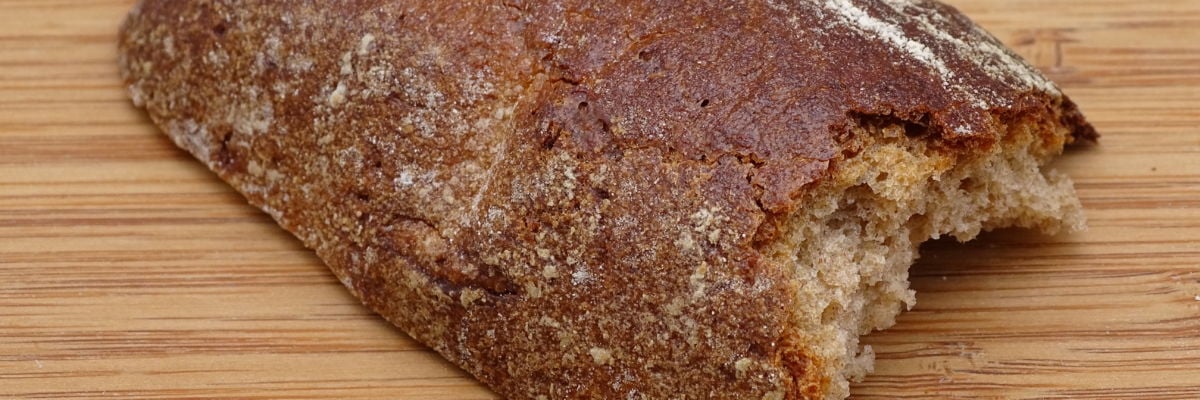
“Unless you eat the flesh of the Son of man and drink his blood, you have no life in you.”
I love how Jesus doubles down against the critics in this scene. He has been talking in general terms about the bread from heaven, how he is the new manna. So far so good, perhaps, if you’re listening and thinking about this as a kind of renewal of the Law; “bread” is, after all, a well-established metaphor for nourishment, including spiritual and intellectual nourishment—a concept we see all over the Old Testament wisdom literature, including in today’s passage from Proverbs. But then the language starts to turn into something else.
The first big twist is the blood language. Again, we might imagine a listener tracking with the manna discourse and its spiritual interpretation, but then—what, drink his blood?! This is offensive on so many levels. Moses never gave the people blood to drink. That was forbidden. The blood was for God alone; the blood was the life. This is crazy talk.
Again, there’s more opportunity to say, “Hold on, don’t worry, let me explain.” But Jesus goes further. In the next statement, “He who eats my flesh and drinks my blood,” he switches from the generic verb phago for “eat” to a much more graphic verb—trogo—for “chew.” It’s as though he’s really digging in, and either trying to be as offensive as possible or trying to say something important.
That’s how St. John Henry Newman puts it. Jesus must be declaring to them some great mystery, for, he asks, “is it conceivable that he who is the truth and love itself should have used difficult words when plain words would do? . . . Does his mercy delight in creating difficulties?” And of course the answer is no, it does not.
There’s a directness about this language that cannot be avoided. People try to avoid it. In my two decades or so of Protestantism, I honestly don’t remember ever hearing this passage read in church, because when you go through it line by line, it is difficult to insist that it means anything other than what everyone in the early Church knew it to mean: that in the Eucharist we somehow really do eat Jesus, that this meal is no mere symbolic remembrance, but a direct participation in his life.
By the way, this is one of the clearest teachings of the early Church. There was a lot of dispute in the early centuries about Christology—about exactly what it means to say that Jesus is God—about the Trinity, about the canon of Scripture, and many other things that most non-Catholic Christians just take for granted. But no serious authority in the early Church disputes the central reality of the Eucharist. In fact, it is at times the ground from which they argue, the axiom that underlies their teaching on other things, like Christ’s divinity.
As the Byzantine writer Theophylact, one of St. Thomas’s favorite commentators, writes, “we do not simply eat God: since he is incorporeal and impalpable; and neither do we simply eat the flesh of a man: which would profit us nothing. But since God joined flesh to himself, this flesh becomes life-giving, not that it changes us into the nature of God, but that just as heated iron remains iron yet gives forth heat, so the flesh of the Lord is life-giving, as the flesh of the Word of God.”
Not just spirit, for that is impossible. Not just flesh, for that is of no profit. But God the Son’s own flesh. The gift Eucharist is central to how the Church came to understand the mystery of the Incarnation.
In our Ordinariate rite, we use the lovely “prayer of humble access” before Holy Communion: “Grant us therefore, gracious Lord, so to eat the flesh of thy dear Son Jesus Christ, and to drink his blood, that our sinful bodies may be made clean by his body, and souls washed through his most precious blood, and that we may evermore dwell in him, and he in us.” Some modern critics dislike the separate language of body and blood, worrying that it might suggest a division in the work of redemption. But the symbolic interplay between the two eucharistic species and our twofold human nature goes far back and isn’t meant to imply that the Precious Blood doesn’t save our bodies or that the Precious Body doesn’t save our souls so much as it is to insist that Christ gives all of himself for all of us. He doesn’t just give us his suffering, or his spiritual nature, or his sweat, or his merit, nor does he gives us himself just so that our souls can live in heaven, or so that our hands will be clean, or that our consciences will be pure. No, it’s all of him for all of us—body, soul, flesh, divinity for everything that we were, are, and can be.
This is important to understand, for the language of the Holy Sacrifice is not meant to suggest that the Eucharist is a re-presentation merely of the cross. Matthew Walsh puts it well: “The body given in the Eucharist is not just the body on the cross: the whole history of that body is contained in the gift. The body we received in Holy Communion was conceived in Mary’s womb, grew to manhood, walked the roads of Palestine, felt hunger and thirst, wrought great miracles, was nailed to the tree, rose from the dead, and now reigns in heaven.”
Put that way, “eating” must mean “chewing,” for how can we swallow so much? How can we gulp down a whole human life, much less a whole human life united at every moment to the eternal life of God? We can’t. But neither can something infinite be given in a simple transaction, as if it has moved from one hand to another. The infinite sacrifice of the God-Man is, indeed, “once for all,” as Hebrews put it, but the Fathers and the Tradition never understood this as meaning something like “the transaction is settled,” which is a modern conceit—it was “once for all” in the sense that it was absolutely unique, it was infinite in value, and—here’s the crucial part—it cannot be repeated because it can never end.
It is often said that a single drop of Christ’s blood is enough to heal the world. But “enough” is not in the vocabulary of the divine Goodness. For an infinite, eternal person to give himself necessarily means an infinite act of self-giving. So the worry about the Holy Sacrifice of the Mass somehow foolishly “repeating” the sacrifice of Calvary is a radical misunderstanding of the sacrifice of Calvary. Christ never stops giving himself for us. He never has, and he never will. Even in heaven, when sacraments cease and we face the full vision of God, his gift remains and nurtures us forever.
May we never underestimate the power and goodness of this gift from our Lord Jesus Christ. Let us seek him, eat him, drink him, chew on his flesh, so that his salvation will be made flesh in us.



